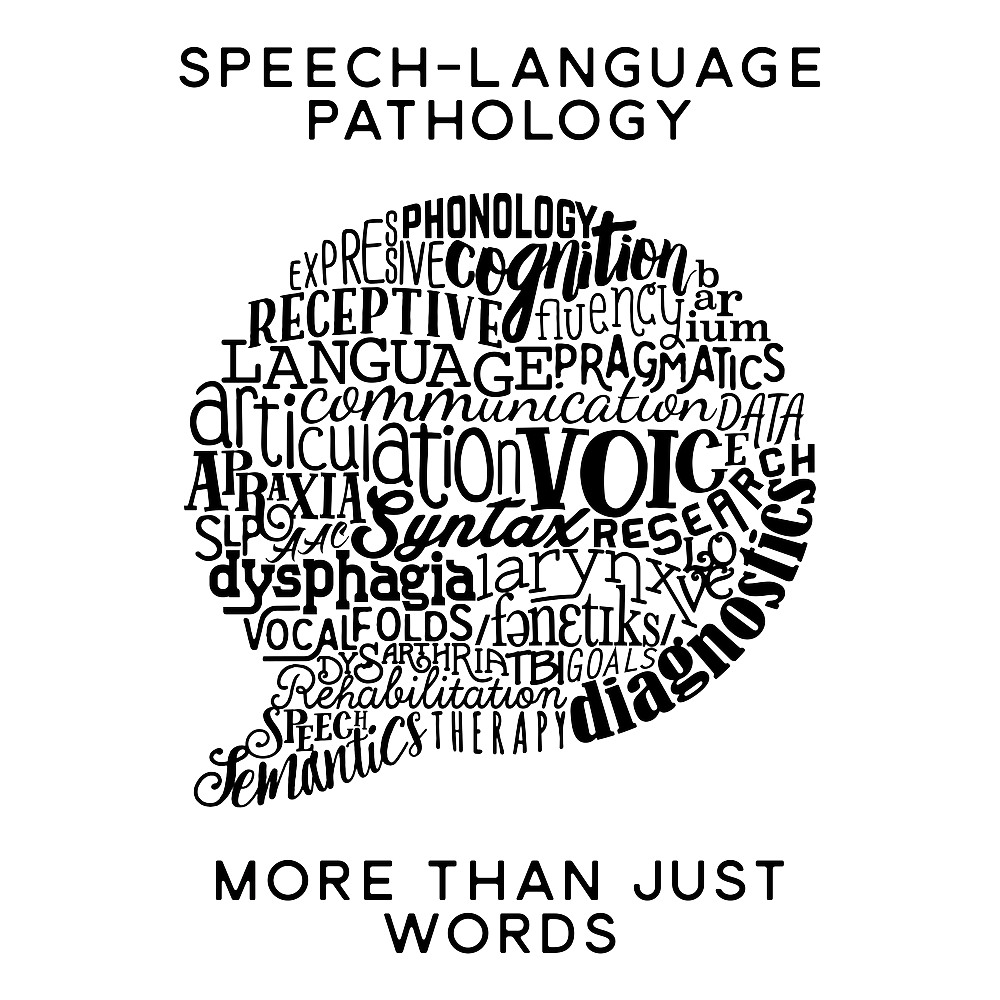How a Speech Pathologist Works with Schools to Enhance Student Outcomes
How a Speech Pathologist Works with Schools to Enhance Student Outcomes
Blog Article
How a Speech Pathologist Can Help Improve Communication Skills
Effective communication is a foundation of individual and specialist success, yet numerous people face difficulties that hinder their ability to reveal themselves plainly. A speech pathologist is outfitted to attend to these obstacles through targeted evaluation and treatment techniques tailored per person's requirements. By utilizing evidence-based therapeutic strategies, they not just work to improve speech and language disorders yet likewise enhance overall communicative capability. Recognizing the diverse role of a speech pathologist discloses just how their knowledge can transform lives, welcoming a more detailed evaluation of the particular methods and end results connected with their method.
Recognizing Communication Disorders
Recognizing communication disorders is important for identifying how they influence individuals' ability to reveal themselves and engage with others. Communication problems include a wide array of problems that impact speech, language, and social communication, commonly hindering efficient communication. These disorders can emerge from various factors, consisting of neurological conditions, developing delays, physical problems, or emotional problems.
Speech problems may materialize as troubles in articulation, fluency, or voice manufacturing, affecting how words are noticable or talked. Language problems, on the other hand, include difficulties in understanding or making use of language, which can restrain both non-verbal and verbal interaction. Social interaction problems are identified by troubles in the practical facets of interaction, such as taking kip down discussion or understanding social signs.
The consequences of communication disorders are profound, impacting not only the individual's ability to convey feelings and ideas yet additionally their social partnerships, instructional possibilities, and total top quality of life. Understanding of these conditions can promote compassion and support, urging reliable methods for communication and engagement. Understanding the intricacies of communication disorders is an essential action in the direction of advertising inclusivity and dealing with the requirements of those impacted.
Role of a Speech Pathologist
Speech pathologists regularly play an essential function in dealing with and detecting interaction problems, using a variety of evidence-based methods tailored to each individual's demands. These experts work with individuals across the life-span, from children with speech hold-ups to grownups recuperating from strokes or stressful brain injuries. Their knowledge incorporates a variety of communication concerns, consisting of articulation, language, voice, and fluency conditions.
In therapeutic settings, speech pathologists utilize structured interventions created to enhance interaction skills. They may implement approaches such as speech exercises, language games, and social interaction training to promote enhancements in expressive and receptive language capacities. Speech Pathologist. Furthermore, they educate customers and their families about efficient communication strategies and adaptive techniques to navigate everyday communications
Beyond direct treatment, speech pathologists collaborate with various other health care experts, teachers, and caretakers to ensure an extensive technique to treatment. They promote for clients by offering sources and assistance, allowing individuals to accomplish their interaction objectives and improve their total lifestyle. As specialists in the field, speech pathologists are necessary in promoting efficient interaction, promoting freedom, and enhancing social participation for those with communication challenges.
Evaluation and Diagnosis Refine
The analysis and medical diagnosis process performed by speech pathologists typically involves a detailed evaluation to determine interaction problems accurately. This procedure starts with a resource thorough situation background, where the medical professional collects pertinent information regarding the individual's medical, academic, and developmental background. Understanding the context of the person's interaction troubles is crucial for a precise diagnosis.
Complying with the case history, speech pathologists use standardized tests and informal assessments to review numerous facets of interaction, consisting review of speech audio manufacturing, language understanding, expressive language, and social communication skills. These analyses are customized to the person's age and details issues, supplying beneficial information for analysis.
Observation is likewise an important component of the assessment process, as it allows the clinician to see direct how the specific connects in all-natural settings. Additionally, meetings with household participants and educators can give insight into the person's interaction challenges across various atmospheres.
Once the evaluation is total, the speech pathologist synthesizes the findings to establish a medical diagnosis and suggest ideal interventions. This comprehensive assessment process makes certain that people obtain targeted support customized to their unique interaction demands, laying the foundation for effective therapeutic techniques.
Therapeutic Methods and Techniques
Countless therapeutic strategies and techniques are used by speech pathologists to deal with a range of communication problems properly. One commonly utilized technique is articulation treatment, which focuses on correcting speech appears with repeating and visual cues. This technique is especially helpful for people with speech audio disorders.
One more reliable method is language intervention, which enhances both meaningful and receptive language abilities. This might involve interactive tasks that promote vocabulary development, sentence structure understanding, and conversational skills. Furthermore, speech pathologists commonly make use of social skills educating to enhance practical language abilities, enabling individuals to navigate social communications a lot more effectively.
Fluency shaping and stuttering adjustment strategies are specifically designed to assist those experiencing fluency disorders. These approaches assist clients create smoother speech patterns and manage the physical and psychological elements of stuttering.
Additionally, alternative and augmentative communication (AAC) systems are used for individuals with serious interaction impairments. These systems, which can consist of motions, signs, or electronic gadgets, provide important support for effective communication.
Benefits of Speech Treatment

In addition, speech therapy can help in developing important listening and understanding abilities, cultivating far better communication in conversations. Individuals with cognitive-communication conditions can also profit, as therapy focuses on strengthening memory and problem-solving capacities, vital for reliable interaction.
An additional crucial aspect is the psychological assistance provided during therapy sessions. Speech pathologists produce a safe environment, encouraging clients to conquer stress and anxiety and irritation pertaining to their interaction problems. This assistance can bring about improved self-confidence and total psychological wellness.
Moreover, very early intervention with speech therapy can avoid more complications, ensuring that people reach their full communicative possibility. On the whole, the advantages of speech treatment extend past mere speech enhancement, positively influencing different dimensions of life for those impacted by interaction difficulties.
Verdict
In summary, speech pathologists play an essential function in attending to interaction disorders with evaluation, medical diagnosis, and tailored restorative treatments. By using evidence-based strategies, these experts improve people' speech and language capabilities, fostering improved quality, fluency, and social communication abilities. The advantages of very early treatment underscore the value of seeking support from speech pathologists, as their knowledge can significantly boost communicative capacity, inevitably leading to higher success in both professional and personal rounds.

Speech pathologists frequently play an important function in treating and identifying interaction conditions, employing a variety of evidence-based techniques tailored to each person's needs. As specialists in the field, speech pathologists are necessary in promoting effective communication, advertising freedom, and improving social participation for those with communication challenges.

Report this page